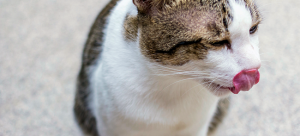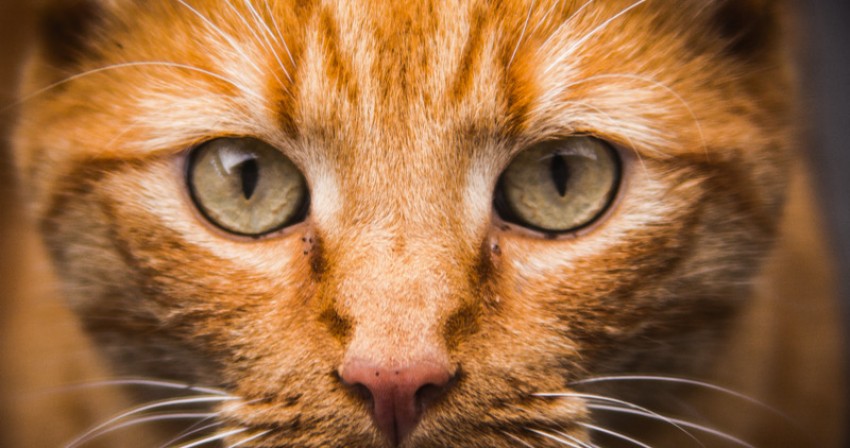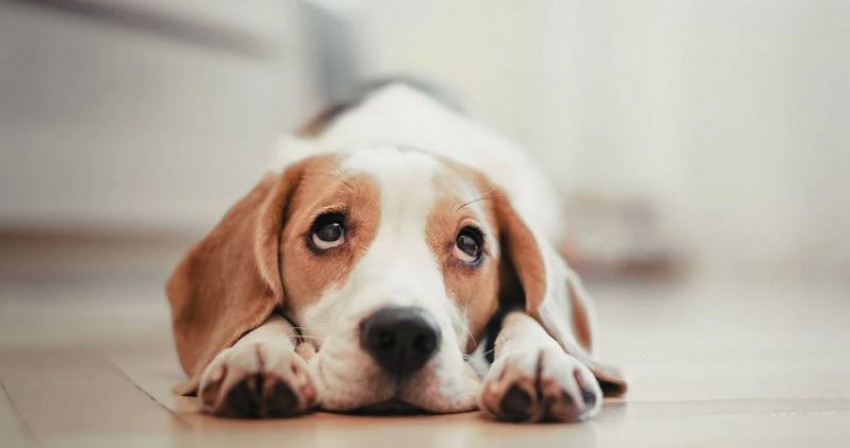Causes and treatment of persistent vomiting in cats
 The cat vomits after eating, yellow or white foam, undigested food? Often and every day? We understand the article and take action
The cat vomits after eating, yellow or white foam, undigested food? Often and every day? We understand the article and take action
In cats, vomiting occurs intermittently if something is eaten that causes intestinal upset or because of a sensitive digestive system. However, a health hazard to the animal occurs when the vomiting does not stop and the vomit does not contain anything other than bile (yellow / white foam). It is extremely important to immediately go to a veterinary clinic if this happens to your cat!
Cat vomiting may have a simple cause that does not need to be examined by a veterinarian, but may also be a symptom of a serious illness.
The difficulty lies in the fact that vomiting can be many reasons and determining the one that caused vomiting in your cat can be a daunting task.
Symptoms of acute vomiting of cats requiring treatment in a veterinary clinic
Weakness
Persistent vomiting
Soreness and indisposition
Scarlet blood in the feces of a cat or in vomiting blood
Dark blood in feces or vomit
Causes of incessant vomiting in cats
Tumor (cancer)
Heatstroke
Liver disease
Inflammation of the stomach and small intestine (gastroenteritis)
Change in cat diet
The cat ate something incompatible with its digestive system.
Overeating / Eating Fast
Food allergies
Food intolerance (usually when eating with food from the table)
Adrenal gland disease
Inversion of the stomach
Helminths (worms)
Esophageal obstruction
Metabolic disorders such as kidney disease
cat tears white foam – causes and treatment
What to do with persistent vomiting in cats
Bring a sample of cat vomiting along with the animal to the veterinarian. The doctor will examine the cat, take the temperature, palpate and examine the cat’s abdomen. If it turns out that vomiting is taking place, it will most likely be necessary to limit the cat’s food in order to clean the cat’s body and bring feces for analysis during this period, as this can help to understand the cause of vomiting.
Occasionally, a cat with vomiting can get rid of poisoning products (toxins) in the intestines.
If the cat vomits a large amount of mucus (white foam), the intestinal inflammation may be the cause.
If the cat vomits undigested food – the reason may be:
Poisoning
Anxiety (vomiting on nerves)
Binge eating
If the cat vomits bile (yellow foam) – the reason may be inflammation of the intestines or pancreatitis
Cat tears yellow foam
If the cat vomits with an admixture of scarlet blood – stomach ulcers may be the cause
If the cat vomits with an admixture of dark blood (the color of coffee grounds) – problems may be with the intestines.
A strong smell of vomit can be a sign of intestinal obstruction.
If esophageal obstruction is suspected, the veterinarian will examine the cat’s mouth. Increased tonsils are an additional sign of this problem.
Treatment of acute cat vomiting
Treatment for vomiting depends on the cause. Some treatment regimens may include:
Diet change
Use of antiemetic drugs
Antibiotics for bacteria caused by ulcers
Corticosteroids for treating intestinal inflammation
Surgery if the cause of cat vomiting is a tumor (cancer)
Special medication for treating chemotherapy vomiting
Recommendations
Always follow the advice of a veterinarian. For successful treatment, it is necessary to apply drugs on time and give prescribed medical food even if the symptoms have ceased.
If the treatment does not show signs of improvement, consult the doctor again.
If your cat has persistent vomiting, there are signs of acute vomiting, described in the article and you are in Moscow – we recommend contacting the round-the-clock veterinary clinic Constellation in NEAD. Leading doctors in the treatment of cats, expert-level equipment (including ultrasound and digital x-rays), their own professional laboratory will quickly help determine the cause of the disease and prescribe the correct treatment for the cat to recover as soon as possible.


